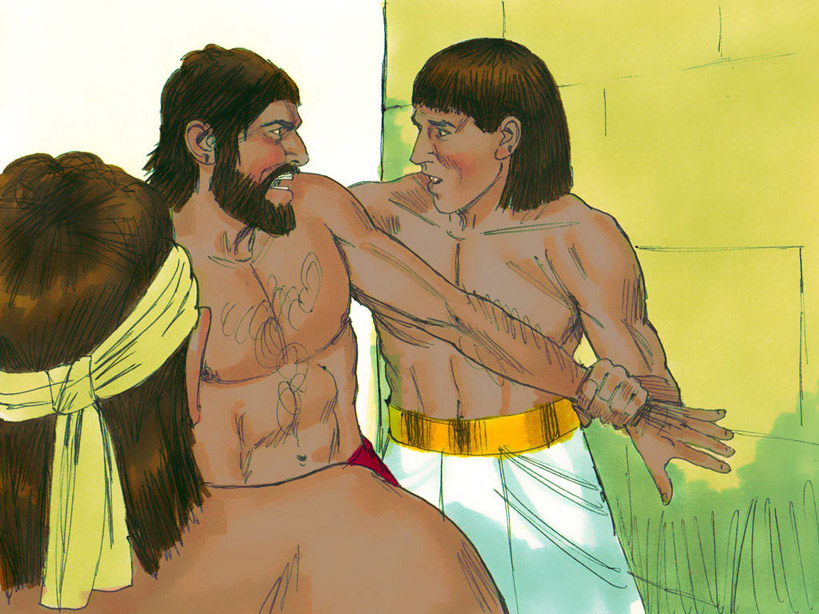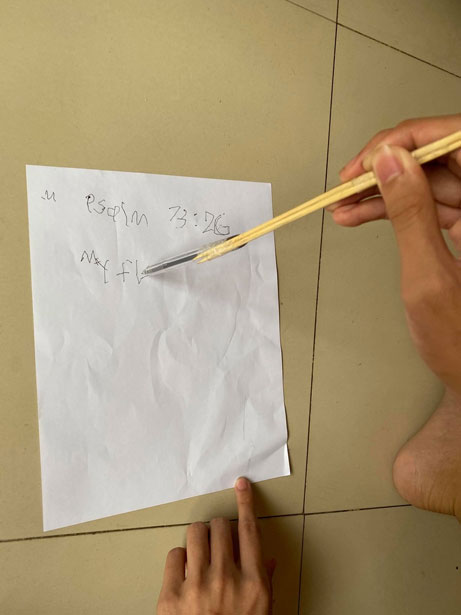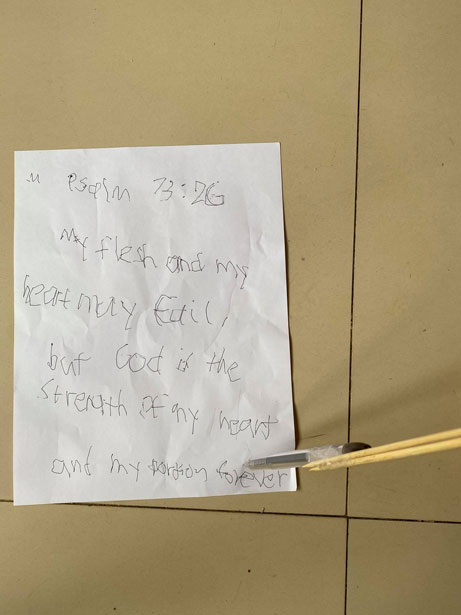
Dear Parents, Guardians, Teachers:
Our lesson this week happened before the Burning Bush experience of Moses. Moses did something that God saw, he murdered an Egyptian and hid him in the sand. This happening is considered as one of Moses’ failures which will be the main theme of our lesson.
Most of us would all love for our children to have these perfect love, without devastating pain, loss or sorrow, but that’s not the reality…or it’s not been the reality for us or most of our parents, and it will NOT be the reality for our kids or grand kids! The reality is that there will be devastating moments, despite the best intentions of our parenting.
Such was the case with Moses. Forced to make a difficult choice, he rescues one mistreated person in his own human power. Confronted with the knowledge of his secret, his confidence in himself fails, and so Moses runs. But thankfully, God is not finished with his servant, as he is not finished with us, after our fleshly failures and despite the best of intentions. Rather, in time, God rebuilds his broken servants to do the seemingly difficult or downright impossible in his strength and power.
Scripture Reference: Exodus 2:11-15
Memory Verse:
“My flesh and my heart may fail, but God is the strength of my heart and my portion forever.”
Psalm 73:26
Bible Lesson
Summary:
One day, after Moses was grown, it happened that he went out to his brethren and looked at their burdens; and he saw an Egyptian beating a Hebrew, one of [Moses’] brethren. He looked this way and that way, and when he saw no one, he killed the Egyptian and hid him in the sand. He went out the second day and saw two Hebrew men quarreling and fighting; and he said to the unjust aggressor, Why are you striking your comrade? And the man said, Who made you a prince and a judge over us? Do you intend to kill me as you killed the Egyptian? Then Moses was afraid and thought, Surely this thing is known.
Read the five (5) verses, Exodus 2:11-15 and Ask Questions:
11 One day, after Moses had grown up, he went out to where his own people were and watched them at their hard labor. He saw an Egyptian beating a Hebrew, one of his own people.
Time flies fast. How many years have passed? What was Moses’ life like? Was he privileged? Did he ever see his family? Did he frequent the Pharaoh very much? Did the Pharaoh know he was an adopted Hebrew “puppy”? Did he enjoy his upbringing? Did he know everything about Egyptian culture? Was he being groomed to be an important official in Egypt? Was he well liked? Respected? What was his relationship with his adopted mother like? Did he have an adopted father?
Why did he go out to where his own people were laboring? Did he feel guilt? His actions seemed to suggest so. So obviously he knew he was Hebrew? What does Hebrew mean? Is this the same as an Israelite? Israel was the new name God gave Jacob when he wrestled with him, but where did “Hebrew” come from? What does it mean? What does Israel mean? Why use “Hebrew” over “Israelite”?
12 Glancing this way and that and seeing no one, he killed the Egyptian and hid him in the sand.
Did he try telling the Egyptian not to beat the Hebrew? Why was the Egyptian beating the Hebrew? Had he not done his job right? Why was there no one else around? Was there not something else Moses could do? Or was this because he felt so much guilt, having lived a privileged lifestyle, while so many others his age had been mercilessly killed? He had to be asking, “Why me?” So was this an over reaction to what was being done? Had it just built up in him for so long? Can you see him beating the Egyptian to death? Can you see Moses hurriedly digging a place to bury the Egyptian? Why sand? Was there no dirt around? Were we not near the Nile River? What is the geological terrain around the city they were building or working at?
13 The next day he went out and saw two Hebrews fighting. He asked the one in the wrong, “Why are you hitting your fellow Hebrew?”
Why does he go back? Is he trying to watch out for his people? Why were they fighting? How is it that Moses just happened upon these two men? Same general location? Moses definitely senses a loyalty for his people. At this point he is trying to help his people in his flesh—the murder, now the role of the peacemaker.
14 The man said, “Who made you ruler and judge over us? Are you thinking of killing me as you killed the Egyptian?” Then Moses was afraid and thought, “What I did must have become known.”
How had word gotten out and around so quick? Were people thinking that Moses could be their deliverer? A savior? A defender? But Moses is like all the rest of us, he still has his fears. As long as he could do something without anyone knowing, he was brave. Now, fearing the retribution of Pharaoh he is not so brave?
15 When Pharaoh heard of this, he tried to kill Moses, but Moses fled from Pharaoh and went to live in Midian, where he sat down by a well.
Word spread fast. How did Moses’ adopted mother feel about all this? Was she still alive? How did Moses get away from Pharaoh? How did he not get caught? Where is Midian? Near the Promised Land? Why Midian? We have seen the well theme several times in Genesis, both with Abraham’s servant when he went to look for Isaac a wife and Jacob as he fled Esau. Wells must have been very important places in the ancient Middle East due to the scarcity of water. (You may show the map below.)

Activities After the Lesson
1. Have your kids watch the animated story of “Moses Escapes from Egypt” below.
2. Let your kids do this Activity: Losing Control
Materials Needed:
– Pen
– Stick
– Scotch Tape
– Bond Paper
A. Tape the stick to the pen as shown below:

B. Let your kids write the memory verse using the pen taped in the stick. Let them hold the tip of the stick while writing. The aim here is for them to commit mistakes and experience difficulties and failures while writing. They will be frustrated by their lack of control, but it may lead to some new discoveries! Encourage them to finish the memory verse as shown below:


Sources: Fellowship at Cross Creek, The Art of Education, Share Faith Kids Film


0 Comments